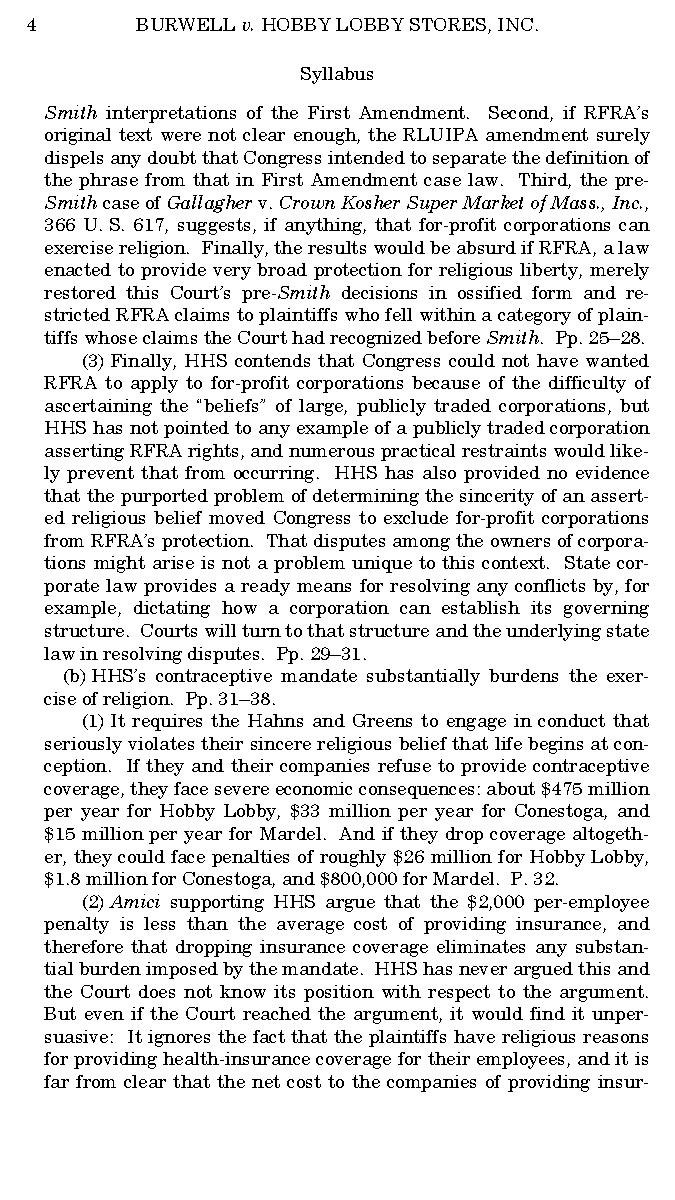Syllabus
Smith interpretations of the First Amendment. Second, if RFRA's original text were not clear enough, the RLUIPA amendment surely dispels any doubt that Congress intended to separate the definition of the phrase from that in First Amendment case law. Third, the pre-Smith case of Gallagher v. Crown Kosher Super Market of Mass., Inc., 366 U. S. 617, suggests, if anything, that for-profit corporations can exercise religion. Finally, the results would be absurd if RFRA, a law enacted to provide very broad protection for religious liberty, merely restored this Court's pre-Smith decisions in ossified form and restricted RFRA claims to plaintiffs who fell within a category of plaintiffs whose claims the Court had recognized before Smith. Pp. 25–28.
(3) Finally, HHS contends that Congress could not have wanted RFRA to apply to for-profit corporations because of the difficulty of ascertaining the "beliefs" of large, publicly traded corporations, but HHS has not pointed to any example of a publicly traded corporation asserting RFRA rights, and numerous practical restraints would likely prevent that from occurring. HHS has also provided no evidence that the purported problem of determining the sincerity of an asserted religious belief moved Congress to exclude for-profit corporations from RFRA's protection. That disputes among the owners of corporations might arise is not a problem unique to this context. State corporate law provides a ready means for resolving any conflicts by, for example, dictating how a corporation can establish its governing structure. Courts will turn to that structure and the underlying state law in resolving disputes. Pp. 29–31.
(b) HHS's contraceptive mandate substantially burdens the exercise of religion. Pp. 31–38.
(1) It requires the Hahns and Greens to engage in conduct that seriously violates their sincere religious belief that life begins at conception. If they and their companies refuse to provide contraceptive coverage, they face severe economic consequences: about $475 million per year for Hobby Lobby, $33 million per year for Conestoga, and $15 million per year for Mardel. And if they drop coverage altogether, they could face penalties of roughly $26 million for Hobby Lobby, $1.8 million for Conestoga, and $800,000 for Mardel. P. 32.
(2) Amici supporting HHS argue that the $2,000 per-employee penalty is less than the average cost of providing insurance, and therefore that dropping insurance coverage eliminates any substantial burden imposed by the mandate. HHS has never argued this and the Court does not know its position with respect to the argument. But even if the Court reached the argument, it would find it unpersuasive: It ignores the fact that the plaintiffs have religious reasons for providing health-insurance coverage for their employees, and it is far from clear that the net cost to the companies of providing insur-
